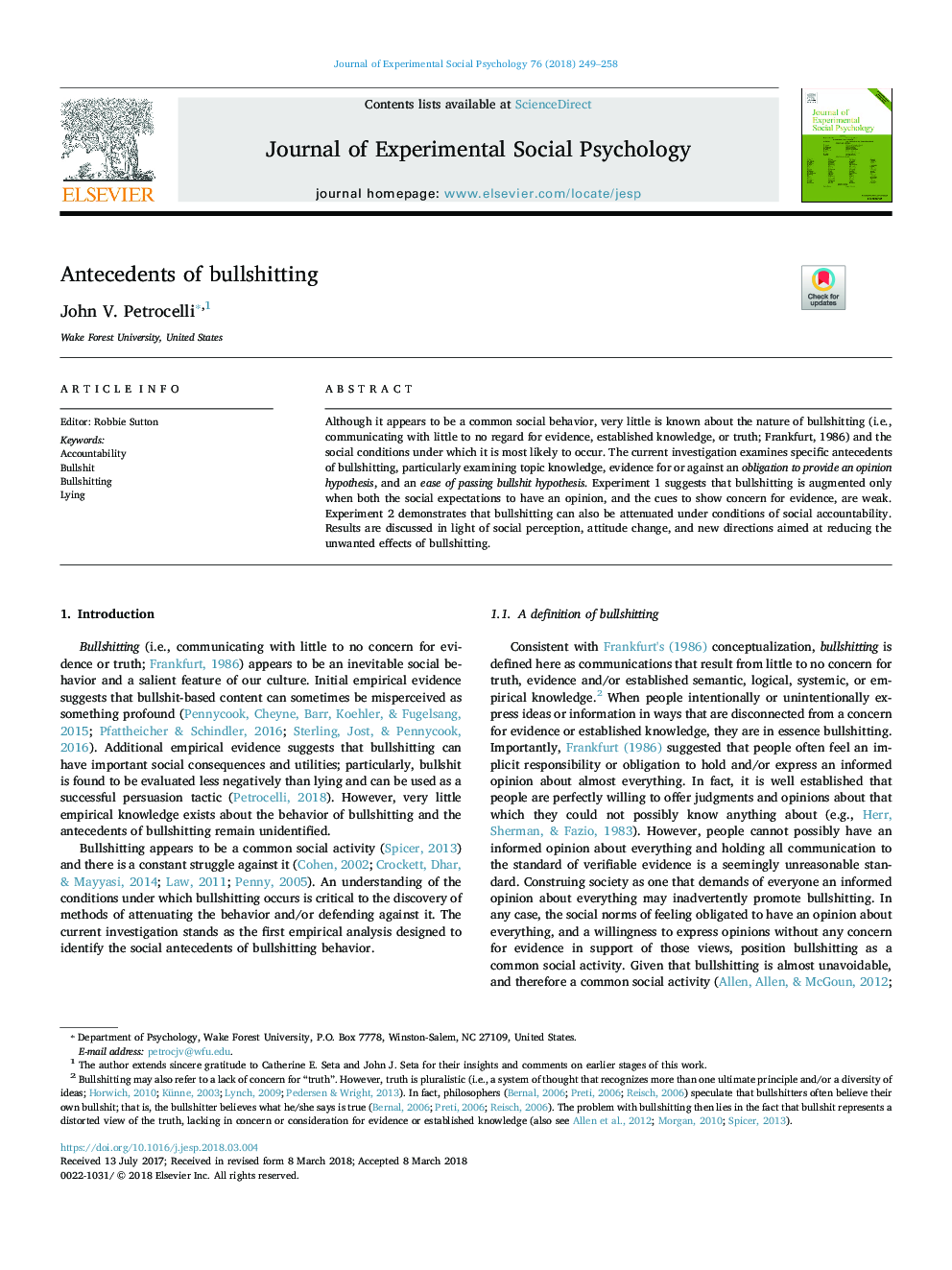| Article ID | Journal | Published Year | Pages | File Type |
|---|---|---|---|---|
| 7324128 | Journal of Experimental Social Psychology | 2018 | 10 Pages |
Abstract
Although it appears to be a common social behavior, very little is known about the nature of bullshitting (i.e., communicating with little to no regard for evidence, established knowledge, or truth; Frankfurt, 1986) and the social conditions under which it is most likely to occur. The current investigation examines specific antecedents of bullshitting, particularly examining topic knowledge, evidence for or against an obligation to provide an opinion hypothesis, and an ease of passing bullshit hypothesis. Experiment 1 suggests that bullshitting is augmented only when both the social expectations to have an opinion, and the cues to show concern for evidence, are weak. Experiment 2 demonstrates that bullshitting can also be attenuated under conditions of social accountability. Results are discussed in light of social perception, attitude change, and new directions aimed at reducing the unwanted effects of bullshitting.
Keywords
Related Topics
Life Sciences
Neuroscience
Behavioral Neuroscience
Authors
John V. Petrocelli,
